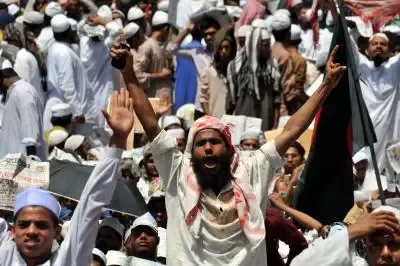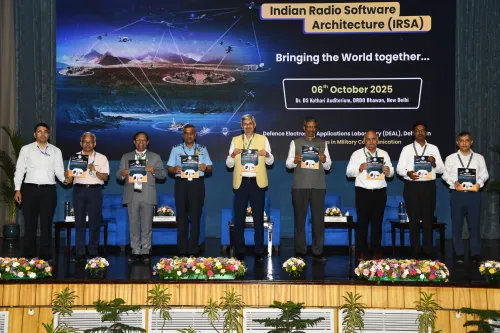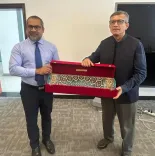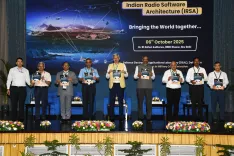Could Hefazat-e-Islam's Rise in Bangladesh Lead to Cross-Border Radicalization?

Synopsis
Key Takeaways
- The Hefazat-e-Islam poses a significant threat to women's rights in Bangladesh.
- Indian intelligence agencies are monitoring the group closely due to cross-border concerns.
- The HeI aims to gain political influence in upcoming elections.
- HeI is linked to Jamaat-e-Islami, advocating for Sharia law.
- There is a risk of communal conflict emerging from HeI's activities.
New Delhi, Oct 7 (NationPress) Indian intelligence agencies are closely monitoring the actions of the radical group based in Bangladesh, Hefazat-e-Islam (HeI).
This organization has been actively opposing women's rights within the nation.
The HeI is calling for the dismantling of the Women's Affairs Reform Commission.
This demand follows the commission's recommendation to the interim government of Bangladesh to implement an ordinance that guarantees equal rights for women of all faiths regarding marriage, divorce, inheritance, and maintenance.
Indian officials assert that the HeI operates as an extension of Jamaat-e-Islami.
Tasked by Jamaat, the HeI is engaged in the persecution of minorities, opposing women's rights, and promoting the enactment of Sharia law.
Given the HeI's significant threat to minorities and the general populace in Bangladesh, Indian agencies are vigilant as these activities could potentially encroach into India.
Since its establishment in 2010, the HeI has made attempts to infiltrate India and establish branches to further its agenda.
The HeI has influence over numerous illegal immigrants from Bangladesh who have entered India.
Through these individuals, the organization has sought to spread radical ideologies in India's northeastern states and West Bengal.
Although the HeI has not found substantial success in India, Indian agencies remain cautious.
In today's world, such movements can escalate rapidly, making them difficult to control.
A heightened surveillance is in place for existing Bangladesh terror modules in India.
Officials warn that the HeI may exploit these modules to orchestrate violent protests and incite communal strife in India.
There is widespread knowledge of the HeI's animosity toward India.
After the removal of former Prime Minister Sheikh Hasina, the HeI was implicated in the assaults on ISKCON.
Moreover, when Prime Minister Narendra Modi participated in Bangladesh's 50th Independence Day celebrations, the HeI's violent demonstrations led to 13 fatalities.
The HeI aspires to establish an Islamic State in Bangladesh.
Additionally, it aligns with the ISI's ambition to annex parts of Northeast India for Bangladesh.
The HeI adopts a Pakistan-centric ideology, arguing for its implementation in Bangladesh.
Performing the role of the Jamaat, which also advocates for an Islamic State, the HeI's mission is to create a Bangladesh devoid of minorities, often leading violent attacks against them.
Another concern is the HeI's attempts to gain political leverage ahead of elections.
The HeI claims confidence in securing seats in Parliament in upcoming elections.
Joint Secretary Mamunul Haq stated that the group will advocate for the enforcement of Sharia law.
He asserts that they possess a network of 500,000 supporters, which they believe will facilitate their parliamentary ambitions.
The HeI is a significant pressure group, having been referenced by multiple political entities in the past.
It is also allied with various Muslim organizations and parties, including the Khilafat-e-Majlis Party.
Since the ousting of Hasina, all these groups have gained considerable strength, with the Jamaat exerting influence.
If the HeI secures a substantial role in government, it may not bode well for India, which seeks to maintain amicable relations with Bangladesh.
Any administration that includes the Jamaat or the HeI could be troubling for New Delhi, as it may align with scripts influenced by the Inter Services Intelligence (ISI).









